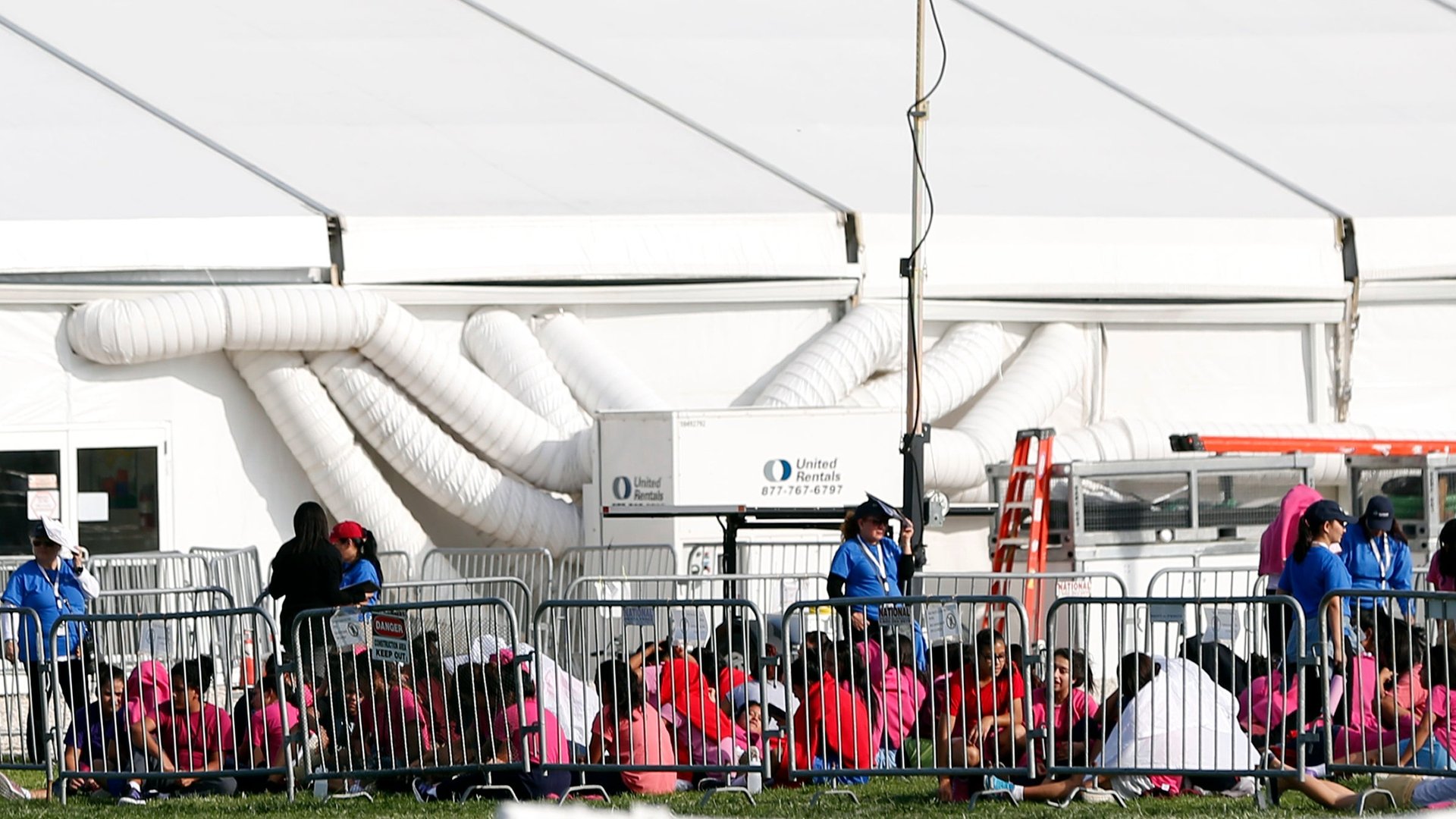US defense contractors profit from child detention—and you might, too
General Dynamics is one of the largest defense contractors in the country, a massive conglomerate that builds jets, tanks, bullets and submarines at facilities around the United States. It is also caring for the detained migrant children that the US government has separated from their parents.


General Dynamics is one of the largest defense contractors in the country, a massive conglomerate that builds jets, tanks, bullets and submarines at facilities around the United States. It is also caring for the detained migrant children that the US government has separated from their parents.
Donald Trump’s decision to separate families who are apprehended illegally crossing the US border has lead to a huge influx of children into the government’s custody. His chief of staff, John Kelly, has promised that “the children will be taken care of—put into foster care or whatever.” With thousands of these children now calling for their parents from converted Wal-Marts and warehouses, the administration needs to come up with “whatever” very fast.
General Dynamics also specializes in outsourcing bureaucracy. Since 2000, it has worked for the Department of Health and Human Services’ Office of Refugee Resettlement. This entails “casework support services to help ensure special needs of unaccompanied children are met, including medical requirements, and to facilitate family reunification, only after children are under the care of Health and Human Services” according to a statement provided by General Dynamics Information Technology spokesperson Jay Hauck.
The statement stresses that “General Dynamics Information Technology has no role in the family separation policy, nor a role in the construction or operation of detention facilities.”
With so many new children in the system, General Dynamic has begun advertising for jobs to help process all of the tiny prisoners—bi-lingual caseworkers, data entry clerks, someone to review files and redact information. (Turn-over is going to be a problem.)
These very specific help-wanted ads have attracted notice from reporters and from activist groups Sleeping Giant and Grab Your Wallet, who have begun contacting the General Dynamics and another contractor,MVM, Inc. to let them “know how they feel about making money on locking children in cages.” MVM is a privately-held former CIA contractor with a checkered history that works with ORR to manage emergency shelters.
In 2017, General Dynamics made more than $4 billion on IT contracts like these, including some administering Medicare. The company would not comment on how much money it was making on its current contract, which began in 2015, or how much it might stand to make if the program expands. Reuters previously reported that the company was awarded $13 million in contracts between 2010 and 2014.
The company has also been popular on Wall Street, and a fixture in the S&P 500—which means it is also found in many people’s 401ks. Today, under an onslaught of bad publicity, its stock has fallen more than 2%.
The company may not have a role in border policy, but it does have influence in Washington. General Dynamics CEO Phebe Novakovic, who made $21 million in total compensation last year, is a former CIA officer, and the company spent more than $11 million last year lobbying lawmakers and executive agencies. Don’t wait on Novakovic joining other Fortune 500 leaders in calling for an end to breaking families apart.